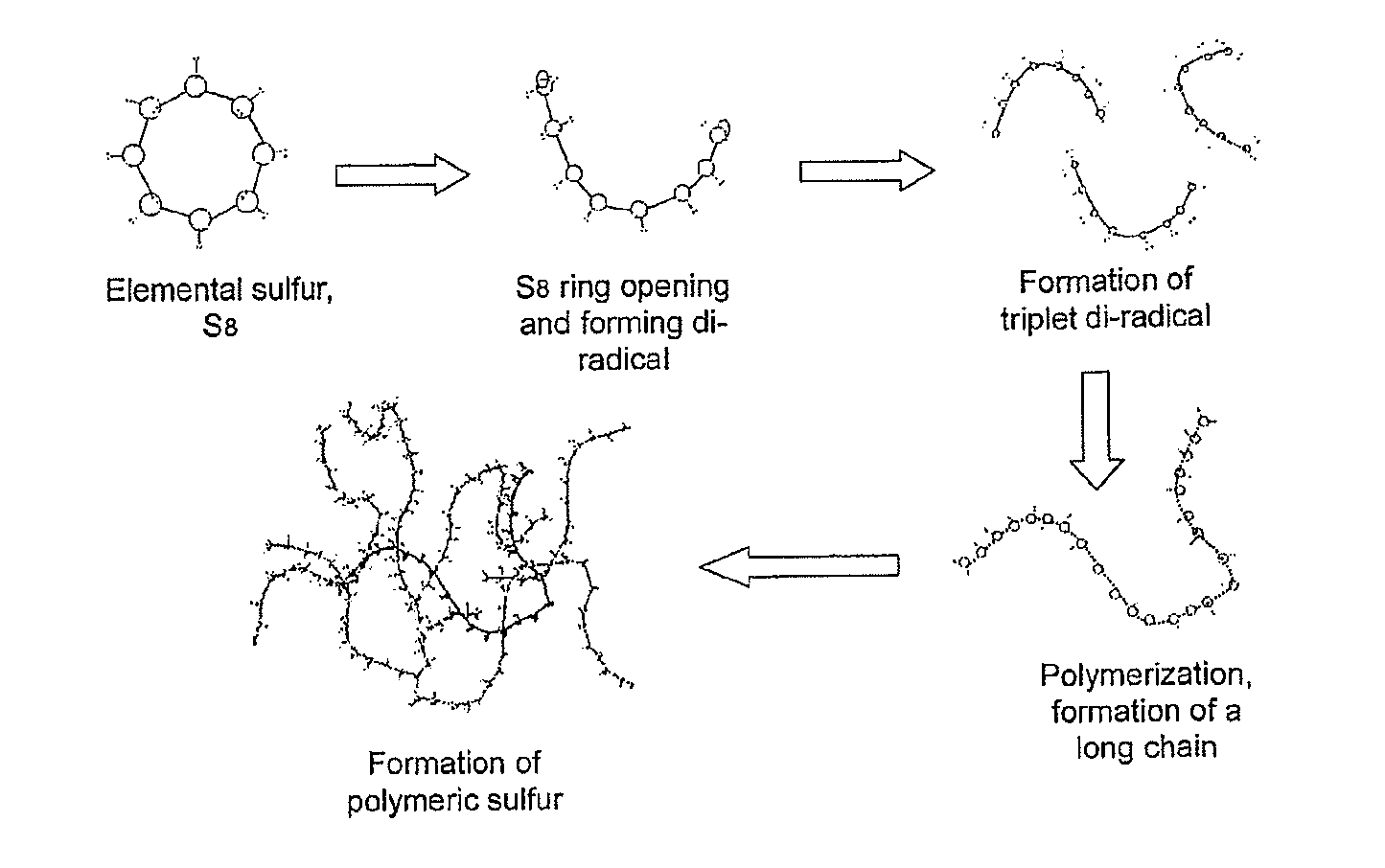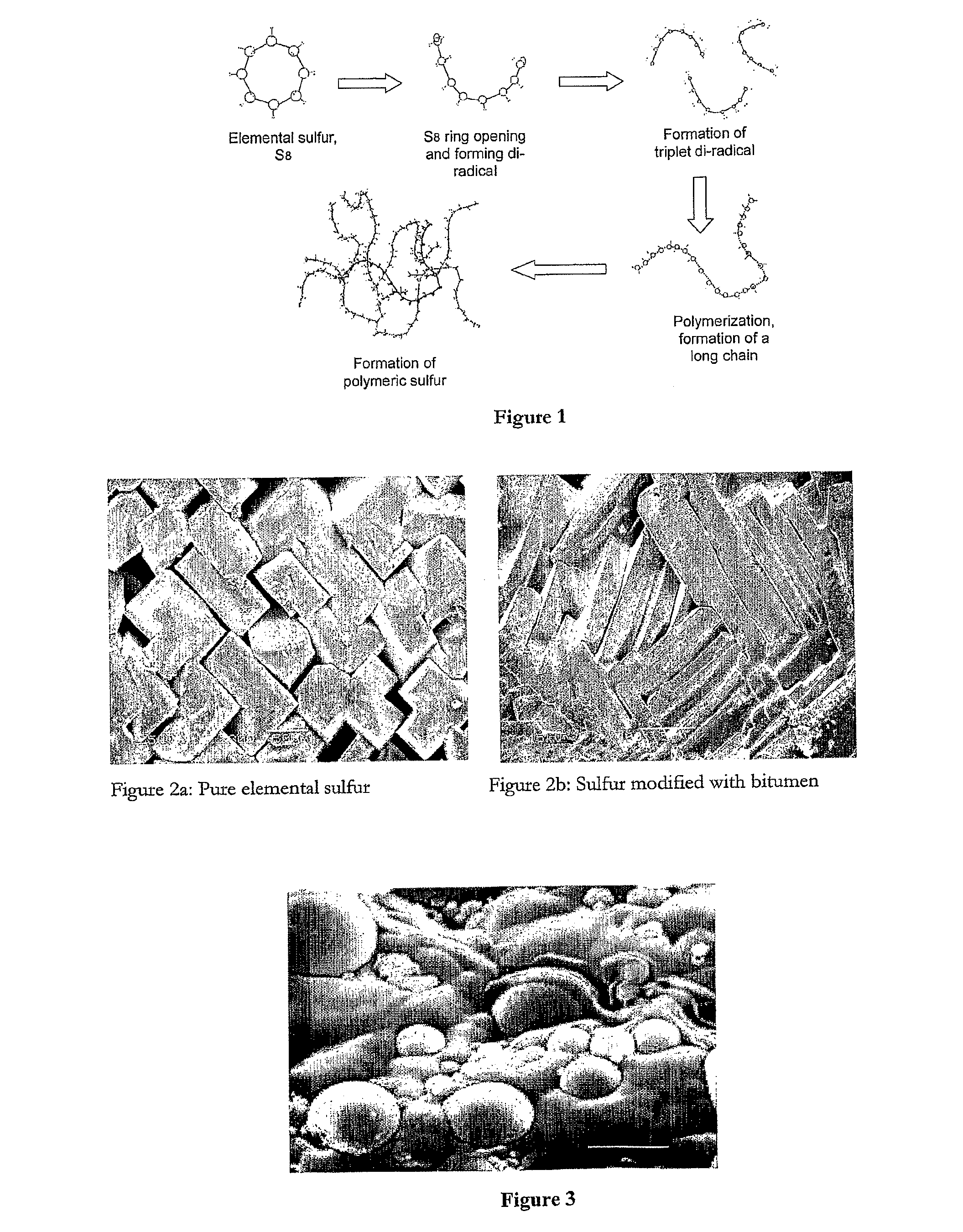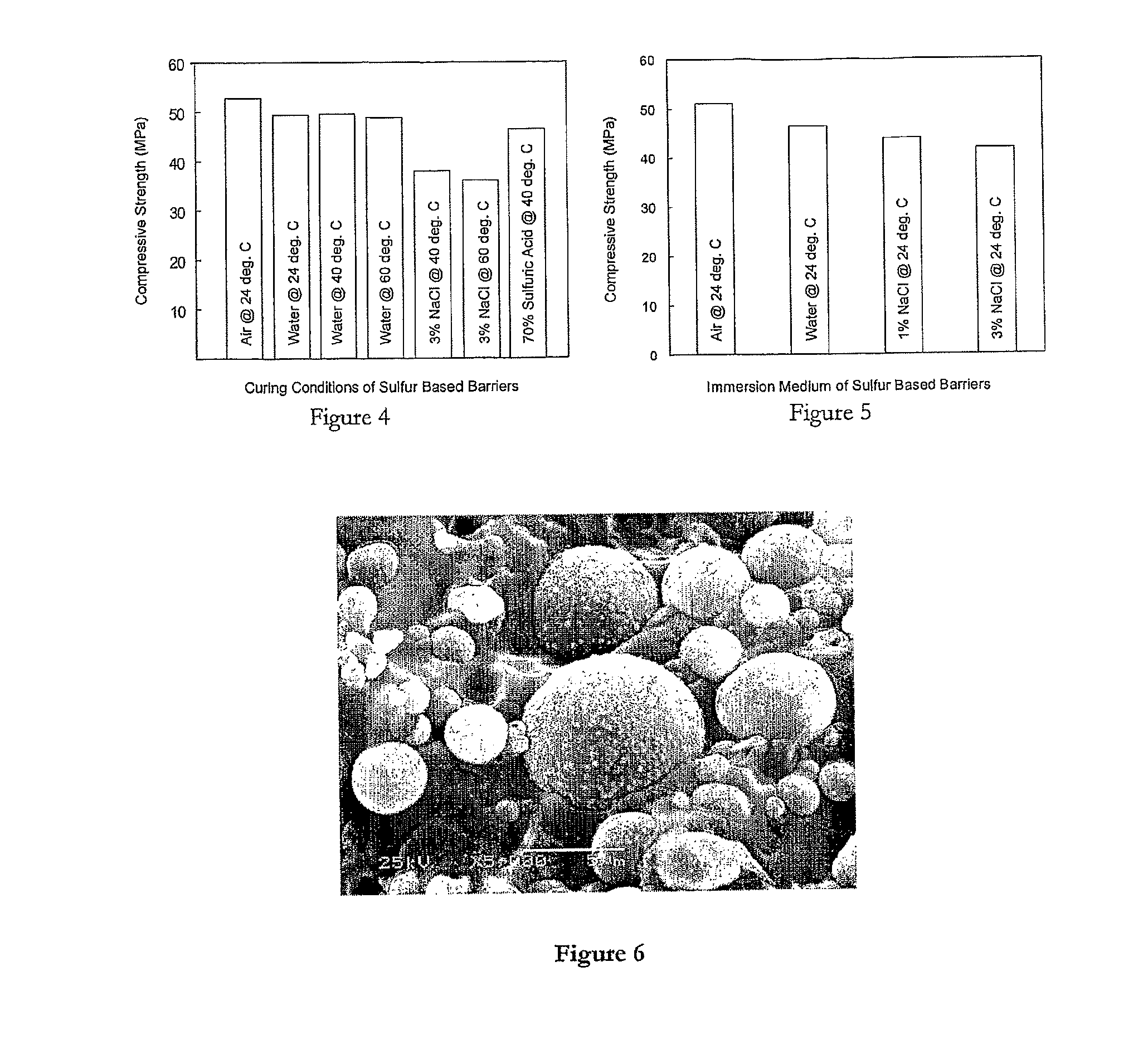Use of surfactant in the preparation of modified sulfur and sulfur cement
a surfactant and cement technology, applied in the direction of sulfur compounds, sulfur preparation/purification, chemistry apparatus and processes, etc., can solve the problems of micro-cracking, sub-pressure in pores and on surfaces, strain on the binder, cracking within the material, etc., to achieve high hydraulic conductivity and restrict the permeation of matter
- Summary
- Abstract
- Description
- Claims
- Application Information
AI Technical Summary
Benefits of technology
Problems solved by technology
Method used
Image
Examples
example 1
Preparation of Modified Sulfur
[0130]Sulfur modification was achieved by reacting sulfur, a modifying agent (bitumen) and a non-ionic surfactant (Triton X-100) to achieve the desired linear polysulfide products (which retard sulfur crystallization). The amount of polysulfide formed based upon the total amount of polymer present ranged from 1 to 5 wt %, and the reaction time ranged from 45-60 minutes at 140° C. The development of the reaction was followed from changes in viscosity and homogeneity of the mixture.
[0131]The sulfur used was of a granular shape with purify of 99.9%, obtained from Al Ruwais refinery, UAE.
[0132]The modifying agent used was a polymer obtained from Geo-Chem Middle East, Dubai, UAE, and physically characterized by a specific gravity of 1.0289 g / cm3, a Kinematics viscosity at 135° C. of 431 cSt (431 mm2 / s), and a softening point of 48.8° C. It contained 79% carbon, 10% hydrogen, 3.3% sulfur and 0.7% nitrogen.
[0133]The product, modified sulfur cement, was a mixtu...
example 2
Preparation of Sulfur Concrete Samples
[0137]Sulfur concrete samples were prepared from sulfur, fly ash, sand and the modified sulfur of Example 1 according to the procedure described in ACI 248.2R-93 for mixing and placing sulfur concrete. The freshly prepared concrete was cast into moulds to form the desired concrete samples.
[0138]The sulfur used was of a granular shape with a purity of 99.9%, and was obtained from Al Ruwais refinery, UAE.
[0139]Chemical analysis of the fly ash used (India-97 / 591) was performed using Inductively Coupled Plasma-Atomic Emission Spectrometry (ICP-AES) VISTA-MPX CCD simultaneous. The fly ash mainly consisted of oxides of silica (60.9%), aluminum (32.4%) and iron (4.34%) with lesser amounts of calcium (0.46%), magnesium (0.66%) and potassium (0.027%). Since the value of SAF oxides (i.e., SiO2+Al2O3+Fe2O3) was over 50%, it was classified as fly ash Type C according to ASTM C 618 (1980).
[0140]The sand used was desert sand obtained from a sandy dunes quarry...
example 3
Characterisation of the Sulfur Concrete Samples
[0142]The sulfur concrete samples were subjected to numerous performance tests to determine their physical, chemical, stabilization, solidification, electrical and thermal properties, under anticipated storage and disposal conditions. Table 1 illustrates the physical and chemical properties determined. The samples tested had a high density structure with a comparable density to hydrated Portland cement. They should therefore provide similar radiation-shielding properties to hydrated Portland cement.
[0143]Analysis showed that the best concrete samples were composed of 34.4% sulfur (modified+unmodified), 36.4% fly ash, and 28.95% sand, i.e. they had a high aggregate content. However, they also met or exceeded the regulatory and disposal site acceptance criteria.
[0144]It was found that the hot mix could be poured at either very high or very low ambient temperatures without problems (as compared with hydraulic cement concrete, which cannot ...
PUM
| Property | Measurement | Unit |
|---|---|---|
| degree of polymerization | aaaaa | aaaaa |
| temperature | aaaaa | aaaaa |
| temperature | aaaaa | aaaaa |
Abstract
Description
Claims
Application Information
 Login to View More
Login to View More - R&D
- Intellectual Property
- Life Sciences
- Materials
- Tech Scout
- Unparalleled Data Quality
- Higher Quality Content
- 60% Fewer Hallucinations
Browse by: Latest US Patents, China's latest patents, Technical Efficacy Thesaurus, Application Domain, Technology Topic, Popular Technical Reports.
© 2025 PatSnap. All rights reserved.Legal|Privacy policy|Modern Slavery Act Transparency Statement|Sitemap|About US| Contact US: help@patsnap.com



